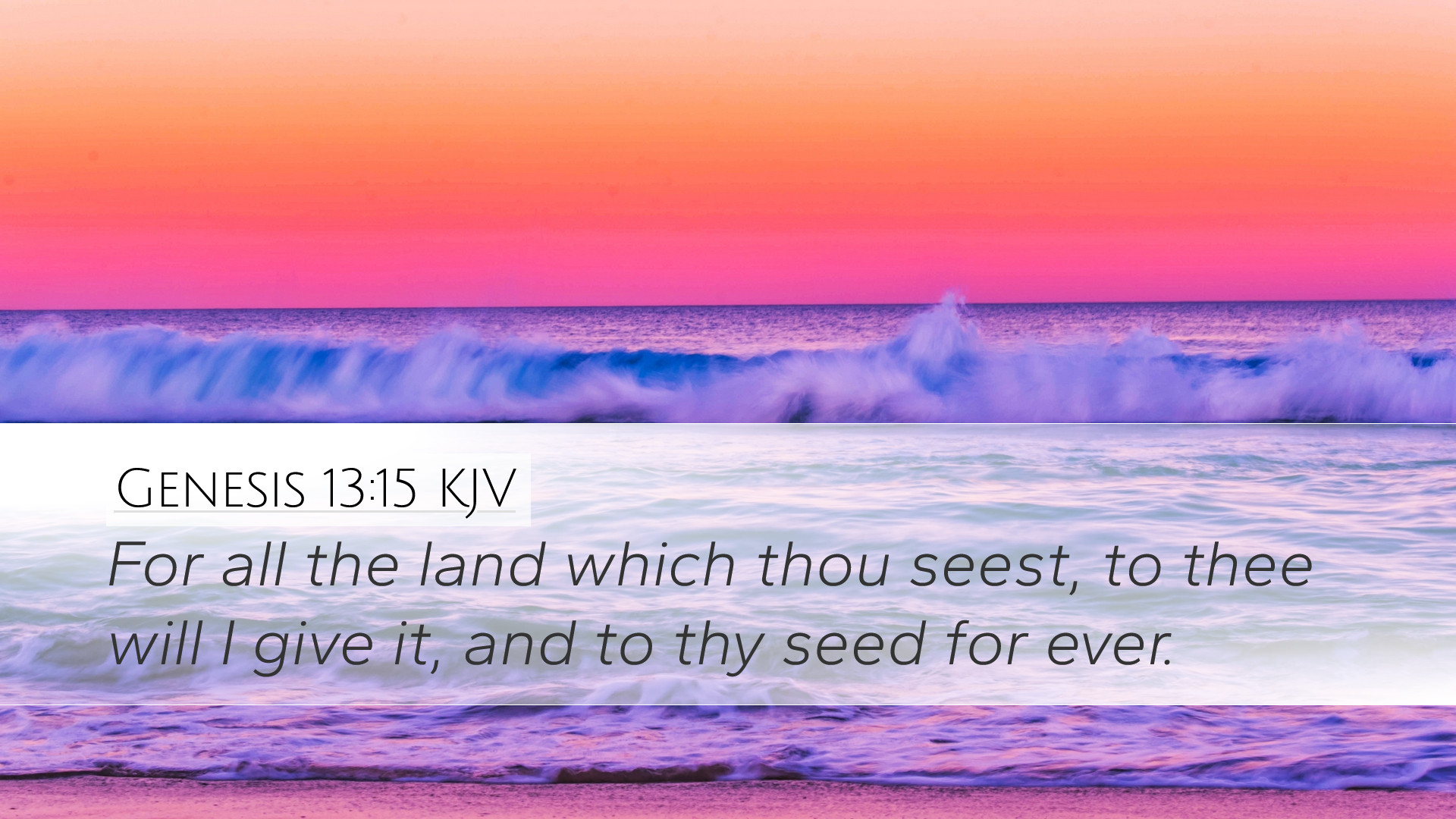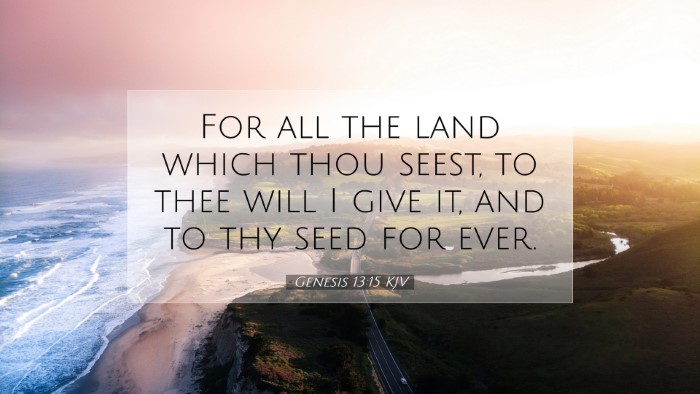Commentary on Genesis 13:15
Genesis 13:15 states, "For all the land which you see, I will give to you and your descendants forever." This verse reveals God's promise to Abraham concerning the land of Canaan, a pivotal element in the narrative of the patriarchs and the unfolding of the covenantal theme throughout Scripture. In this commentary, we will explore various insights from public domain commentaries by Matthew Henry, Albert Barnes, and Adam Clarke.
Contextual Overview
This verse occurs in a significant moment following the separation of Abraham and Lot. Abraham, having journeyed from Ur to Canaan, faced a critical decision that would shape his legacy. The land promised to him symbolizes not just physical territory but also spiritual inheritance and divine favor. It is crucial to understand the geographical and historical context of this promise.
Insights from Matthew Henry
Matthew Henry emphasizes the graciousness of God's promises. He notes that God's promise of land was not contingent upon Abraham's merit but was a demonstration of God's unmerited favor. Henry observes:
- The vastness of the promise: God invites Abraham to look in all directions, assuring him that the land he sees is to be his.
- The confirmation of the promise to his descendants: This underscores the generational aspect of God’s covenant, highlighting the future implications for the nation of Israel.
- The permanence of the promise: The word "forever" indicates the eternal aspect of God's covenant; it is not merely a temporary grant but an everlasting possession.
Insights from Albert Barnes
Albert Barnes provides valuable commentary on the theological implications of this promise. He elucidates several key points:
- The Divine Assurance: God’s declaration to Abraham reflects His sovereignty and omnipotence. Barnes points out that the promise holds true regardless of human circumstances.
- The Nature of the Land: Barnes notes that the land of Canaan represents a type of greater spiritual truths, resembling the Kingdom of God. Thus, for the believer, this land foreshadows the eternal inheritance promised in Christ.
- The obligation of faith: Barnes concludes that this promise requires a response of faith from Abraham, establishing the importance of trust in God's word amid uncertainties.
Insights from Adam Clarke
Adam Clarke provides an in-depth analysis of the language and implications of the verse:
- Linguistic Analysis: Clarke discusses the Hebrew term used for "give," which denotes a gift that is free and gracious, highlighting God’s character as a giver.
- Abraham's Vision: He reflects on the act of seeing the land as a visual confirmation of faith. Clarke notes that Abraham's ability to see symbolizes the importance of vision in faith—seeing beyond the present into God’s future.
- Theological Implications: Clarke draws parallels between this promise and the New Testament understanding of inheritance through faith. He argues that, like Abraham, believers today are heirs to the kingdom of God based on their faith.
Thematic Reflections
In light of the insights gathered from these commentaries, several themes emerge that are relevant for pastors, students, theologians, and scholars:
- Covenant Relationships: Genesis 13:15 underlines the nature of God’s covenant, characterized by grace and steadfast love. It highlights the relational aspect of God’s promises.
- Faith and Obedience: The promise is both a gift and a call to faithfulness. As Abraham received the promise, so are believers called to walk in faith, believing in God’s outcomes.
- Hope for the Future: This verse serves as an anchor for faith—grounding future hope in God’s character and His unchanging promises.
Conclusion
Genesis 13:15 is a foundational verse that encapsulates God’s promise to Abraham and his descendants, highlighting key theological insights relevant to contemporary faith. The teachings of Matthew Henry, Albert Barnes, and Adam Clarke collectively remind us that God's promises are not only grounded in His character but are also available for all who will trust in Him. Through these reflections, we are encouraged to understand and live out the implications of belonging to God's covenantal family.


